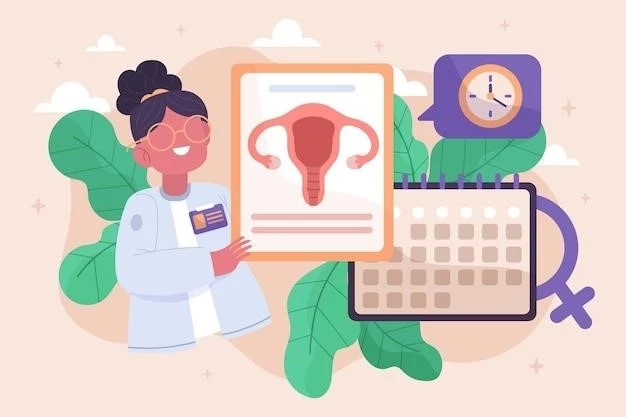Understanding Endometriosis

Endometriosis, a chronic condition affecting the uterus, ovaries, and pelvic tissue, can cause severe pain, inflammation, and hormonal imbalances. It impacts fertility and menstruation, often leading to infertility. Seek diagnosis through laparoscopy for treatment options.
Introduction to Endometriosis
Endometriosis is a condition where the tissue similar to the lining of the uterus grows outside of it, commonly on the ovaries, fallopian tubes, and pelvic lining. This abnormal growth responds to hormonal changes during the menstrual cycle, leading to inflammation, scarring, and adhesions. The most common symptom of endometriosis is severe pelvic pain before and during menstruation. Other symptoms include heavy periods, pain during intercourse, and infertility.
Understanding endometriosis is crucial for early diagnosis and management. It affects women of reproductive age and can impact various aspects of their lives, including fertility, work, and relationships. The exact cause of endometriosis is still unknown, but factors like genetics, hormonal imbalances, and immune system issues may play a role.
If you suspect you have endometriosis, it is essential to consult with a healthcare provider specializing in reproductive health. They can evaluate your symptoms, perform diagnostic tests like ultrasound or laparoscopy, and recommend a treatment plan tailored to your needs. Early diagnosis and intervention can help manage the condition effectively and improve your quality of life.
Endometriosis Symptoms
Endometriosis symptoms can vary from mild to severe and may differ among individuals. The most common symptom is pelvic pain that often intensifies before and during menstruation. This pain may also occur during intercourse or bowel movements. Other symptoms include⁚
- Heavy or irregular periods
- Chronic lower back or abdominal pain
- Painful urination or bowel movements during menstruation
- Excessive fatigue
- Bloating or nausea
- Difficulty conceiving
It is essential to pay attention to your body and seek medical advice if you experience persistent or severe symptoms. Early detection and management of endometriosis can help alleviate discomfort and prevent potential complications like infertility. Keeping a symptom diary can assist in tracking patterns and severity, aiding in the diagnostic process. Consult with a healthcare provider for proper evaluation and personalized treatment recommendations based on your symptoms.
Impact on Fertility
Endometriosis can have a significant impact on fertility for women of reproductive age. The condition can lead to structural changes in the reproductive organs, scarring, and adhesions, hindering the natural process of conception. Endometrial tissue growth outside the uterus may affect the ovaries and fallopian tubes, disrupting ovulation and the transport of eggs.
If you are struggling with infertility and have been diagnosed with endometriosis, it is crucial to work closely with a fertility specialist who understands the complexities of the condition. Various treatment options, such as assisted reproductive technologies like in vitro fertilization (IVF), may be recommended to enhance the chances of pregnancy.
While endometriosis can make conception more challenging, it does not mean that pregnancy is impossible. With proper management, including medical interventions, lifestyle modifications, and emotional support, many women with endometriosis can successfully achieve pregnancy. It is essential to address both the physical and emotional aspects of infertility while navigating the complexities of endometriosis.
Diagnosis and Treatment Options
Diagnosing endometriosis typically involves a combination of medical history evaluation, symptom assessment, physical examination, and imaging tests. The gold standard for definitive diagnosis is a minimally invasive procedure called laparoscopy, where a surgeon can visualize and potentially treat endometriosis lesions.
Once diagnosed, the treatment approach for endometriosis aims to manage symptoms, reduce inflammation, and improve quality of life. Treatment options may include⁚
- Pain Management⁚ Over-the-counter pain relievers, hormonal therapies, or nerve blocks can help alleviate pelvic pain associated with endometriosis.
- Hormonal Therapy⁚ Hormonal contraceptives, gonadotropin-releasing hormone agonists, or progestins may be prescribed to regulate the menstrual cycle and reduce endometrial tissue growth.
- Surgery⁚ In cases where conservative treatments are ineffective, surgical intervention through laparoscopy or laparotomy may be necessary to remove endometrial implants, scar tissue, or cysts.
- Fertility Treatments⁚ For women experiencing infertility due to endometriosis, fertility treatments like IVF or intrauterine insemination (IUI) may be considered.
It is essential to discuss the benefits and potential risks of each treatment option with your healthcare provider to make informed decisions based on your symptoms, severity of the condition, and reproductive goals. A comprehensive treatment plan tailored to your individual needs can help manage endometriosis effectively and improve your overall well-being.
Understanding the Role of Inflammation
Inflammation plays a crucial role in the development and progression of endometriosis. The presence of endometrial tissue outside the uterus triggers an inflammatory response in the body, leading to pain, tissue damage, and scarring. Chronic inflammation can worsen symptoms and impact the overall health of individuals with endometriosis.
Managing inflammation is a key aspect of treating endometriosis and improving quality of life. Lifestyle modifications, such as maintaining a healthy diet rich in anti-inflammatory foods, regular exercise, stress reduction techniques, and adequate sleep, can help reduce inflammation levels in the body. Additionally, certain dietary supplements like omega-3 fatty acids and turmeric may have anti-inflammatory properties that could benefit individuals with endometriosis.
Working closely with a healthcare provider specializing in endometriosis can help you develop a comprehensive treatment plan that addresses inflammation alongside other symptoms. By targeting inflammation through a multifaceted approach, you can better manage pain, reduce the risk of complications, and enhance your overall well-being while living with endometriosis;
Managing Chronic Pain
Chronic pain is a common and debilitating symptom of endometriosis that can significantly affect daily life. Effective pain management strategies are essential to improve quality of life for individuals living with the condition. It is important to work closely with healthcare providers to develop a personalized pain management plan tailored to your needs and preferences.
Various approaches can help in managing chronic pain associated with endometriosis⁚
- Medications⁚ Over-the-counter pain relievers like ibuprofen or acetaminophen can help alleviate mild to moderate pain. Prescription medications may be recommended for severe pain management.
- Hormonal Therapy⁚ Hormonal contraceptives or other hormone-based treatments can help regulate menstrual cycles, reduce pain, and slow down the growth of endometrial tissue.
- Complementary Therapies⁚ Techniques such as acupuncture, physical therapy, yoga, and meditation may help manage pain and improve overall well-being.
- Diet and Nutrition⁚ Some individuals find relief from pain by following an anti-inflammatory diet, avoiding trigger foods, and staying hydrated.
It is essential to communicate openly with your healthcare team about the effectiveness of pain management strategies and any side effects experienced. Additionally, learning to pace yourself, practicing stress-reduction techniques, and seeking emotional support through counseling or support groups can contribute to better pain management while living with endometriosis.
